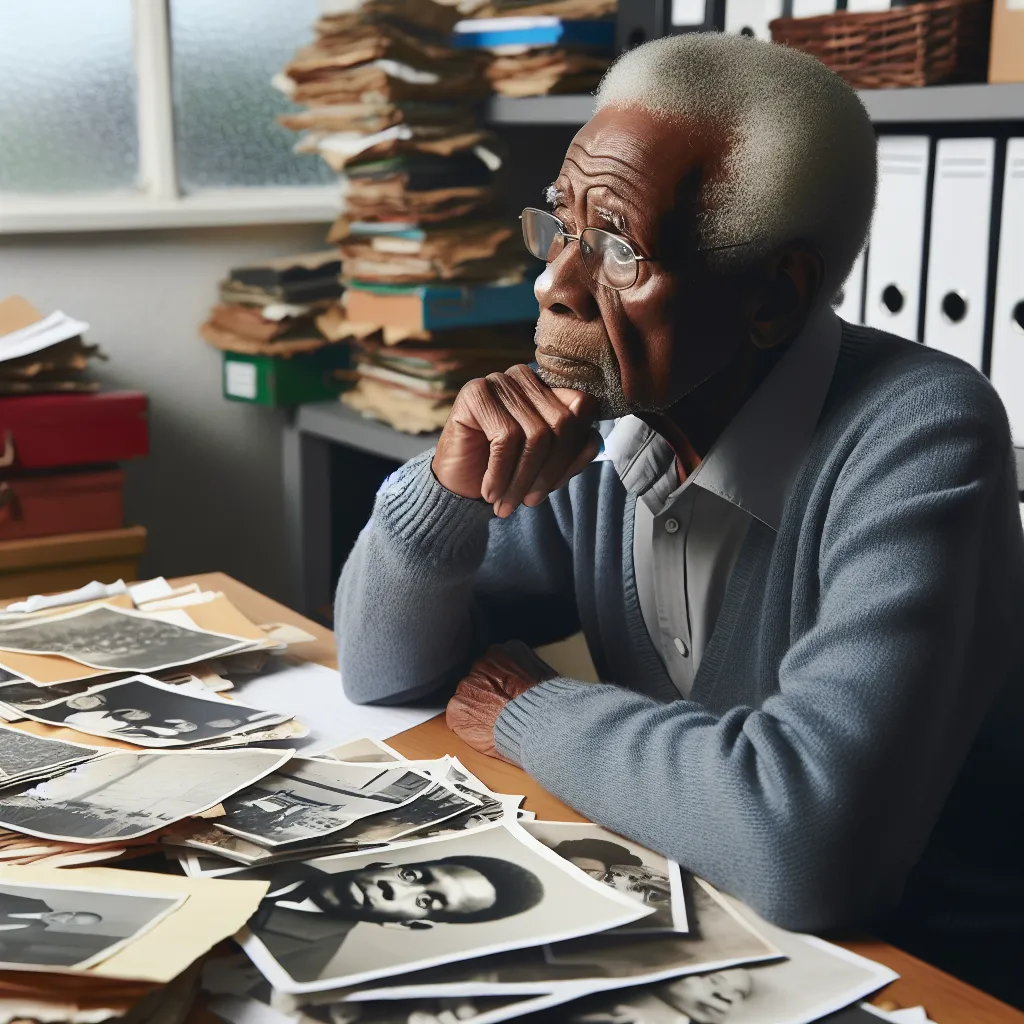Ask AI on The Internet
Question: Key Question: How did apartheid affect people’s lives and how did they respond? The project consists of two parts: • A written research task on one apartheid law • An oral history task in which you interview a person. Written research 1. Decide which apartheid law you are going to research [for example: Bantu Education Act; 2. Make use of reliable internet sites/books to research your law. 3. Write down the details of where you found your information for your bibliography. Research Essay: Introduction: State which law you have researched and the reason why you chose this issue. Body of evidence: a) When was the law passed or implemented? Why was the law passed? b) What changed were put in place after the law was implemented? c) What attitudes did people have towards the law? Conclusion: Why do you think this law or issue is interesting or important to know about today? Write a bibliography: 1) Title of Article: ____________________________________________________ Title of Website:___________________________________________________ Author: ________________________________________ Date of Publication: ________________________________________________ Date Accessed: ________________________________________ Publisher: _______________________________________ Page Numbers Used (If applicable): __________________ 2) Title of Article: ____________________________________________________ Title of Website:___________________________________________________ Author: ________________________________________ Date of Publication: ________________________________________________ Date Accessed: ________________________________________ Publisher: _______________________________________ Page Numbers Used (If applicable): __________________ Oral History Interview: Find out more about the law you researched from someone whose life was affected by it. Briefly explain why you chose this person. Ask the interviewee the following questions. Write down short answers. 1)When were you born? 2)Where did you grow up? 3) How did this law (e.g. Separate Amenities Act) affect you? 4) How did you respond to this law? 5) Why did you choose to respond in this manner? 6) How do you feel now that this law (Separate Amenities Act) in so longer a law in South Africa? Using the information, you gathered from your research and the interview, write an essay about the person who was interviewed. Focus on how he/she was affected by the law or issue and how he/she responded to it. Comment on your own reflections on the experience of doing the project. [What was interesting? How has it made you rethink your own views?] Your project will be marked according to this rubric: Level 7 Outstanding Level 6 Meritorious Level 5 Substantial Level 4 Adequate Level 3 Moderate Level 2 Elementary Level 1 Not Achieved Articulate, insightful, well expressed, accurate and appropriate content Well expressed, clear; accurate and appropriate content Good expression; clear; could have more content; good understanding Some errors in expression; some good content; but little understanding Errors in expression; could have more content; not much understanding Poor expression; content inadequate; No understanding of the issues; some areas incomplete Incomplete; no understanding shown; poor or inaccurate expression and content Research essay (20) 20-16 15-14 13-12 11-10 9-8 7-6 5-0 Bibliography (3) 3 2 1 0 Person chosen (3) 3 2 1 0 Essay about the person you interviewed (20) 20-16 15-14 13-12 11-10 9-8 7-6 5-0 Self -reflection (4) 4-3 2 1 0 Total: ______/50
### Research Essay: Introduction #### Introduction: For this project, I have chosen to research the Bantu Education Act of 1953. This law was a pivotal part of the apartheid system as it significantly influenced the education and future prospects of black South Africans. I chose this issue because education is a fundamental right that shapes individuals and societies. Understanding how this law affected people helps in grasping the broader impacts of apartheid. ### Body of Evidence: #### a) When was the law passed or implemented? Why was the law passed? The Bantu Education Act was passed in 1953 and implemented from January 1, 1954. The apartheid government introduced this law to control the education of black South Africans. The intent was to ensure that black people received an inferior education that would confine them to the lower echelons of society and limit their opportunities for advancement. #### b) What changes were put in place after the law was implemented? The Bantu Education Act transferred control of black education from the missionaries and provincial authorities to the Department of Native Affairs. The curriculum was designed to prepare black students for a life of servitude and labor, emphasizing vocational training over academic subjects. Schools were chronically underfunded, and the quality of education deteriorated significantly. This change aimed to entrench the racial hierarchy by keeping black South Africans uneducated and subordinate. #### c) What attitudes did people have towards the law? The law was met with widespread resistance from black South Africans and educational missionaries. Many saw it as a deliberate attempt to suppress their development and maintain white supremacy. People like Nelson Mandela and organizations such as the African National Congress (ANC) and the South African Students’ Organization (SASO) vocally opposed the law. Protests, boycotts, and strikes were common responses, demonstrating the resilience and defiance of those affected. #### Conclusion: The Bantu Education Act remains a crucial issue to learn about today because it highlights the lengths to which oppressive regimes will go to maintain power and control. It underscores the importance of equal access to quality education, a cornerstone for building a just and equitable society. ### Bibliography: 1. Title of Article: "The Bantu Education Act of 1953" Title of Website: South African History Online Author: South African History Online Date of Publication: 2017 Date Accessed: 09/28/2023 Publisher: South African History Online Page Numbers Used (If applicable): N/A 2. Title of Article: "Bantu Education: Destruction or Development of Apartheid?" Title of Website: Sahistory.org.za Author: Alan Booth Date of Publication: 2014 Date Accessed: 09/28/2023 Publisher: South African History Online Page Numbers Used (If applicable): N/A ### Oral History Interview: #### Chosen Person: I chose to interview Mrs. Nandi Mkhize, a retired teacher who experienced the Bantu Education system firsthand. Her experience as both a student and teacher during apartheid offers valuable insights. #### Interview Questions and Answers: 1. **When were you born?** - I was born in 1945. 2. **Where did you grow up?** - I grew up in Soweto, Johannesburg. 3. **How did this law affect you?** - The Bantu Education Act limited my educational opportunities, and as a teacher, it was heartbreaking to see my students receive substandard education. 4. **How did you respond to this law?** - I joined protest movements and participated in strikes. As a teacher, I tried to give my students the best education I could despite the restrictions. 5. **Why did you choose to respond in this manner?** - I believed in the importance of education for empowerment and equality. It was my duty to resist this oppressive law. 6. **How do you feel now that this law is no longer in effect in South Africa?** - I feel relieved and hopeful. The abolition of apartheid laws like the Bantu Education Act has opened new opportunities for the younger generation. ### Essay About Interviewee: Mrs. Nandi Mkhize, born in 1945, grew up in Soweto under the shadow of the Bantu Education Act. As a student, she faced significant barriers to acquiring quality education. The curriculum was designed to limit her aspirations and opportunities. However, she was determined not to be subdued. She joined protest movements and actively participated in educational strikes. When she became a teacher, Mrs. Mkhize used her position to subvert the system from within. She committed herself to providing the best possible education to her students, despite the limitations imposed by the Bantu Education Act. Her participation in protests and her relentless effort to educate her students were acts of resistance that demonstrated her commitment to equality and empowerment. Now, Mrs. Mkhize feels relieved that the Bantu Education Act is history. She is hopeful for the future of South Africa and values the strides made towards equality and quality education for all. ### Self-Reflection: Conducting this project was an eye-opening experience. It was fascinating to delve into the intricacies of apartheid laws and their far-reaching impacts. Interviewing Mrs. Mkhize was particularly poignant; her stories brought a human dimension to the historical facts. This project has deepened my understanding of the importance of equal education and has made me reflect on the responsibilities we have in preventing the recurrence of such oppressive systems. ### Total Score: ______/50
Think your answer is better than the AI's? Post it below.
Question Tags
If you want your question answered by an AI, click here.







Post your own comment: